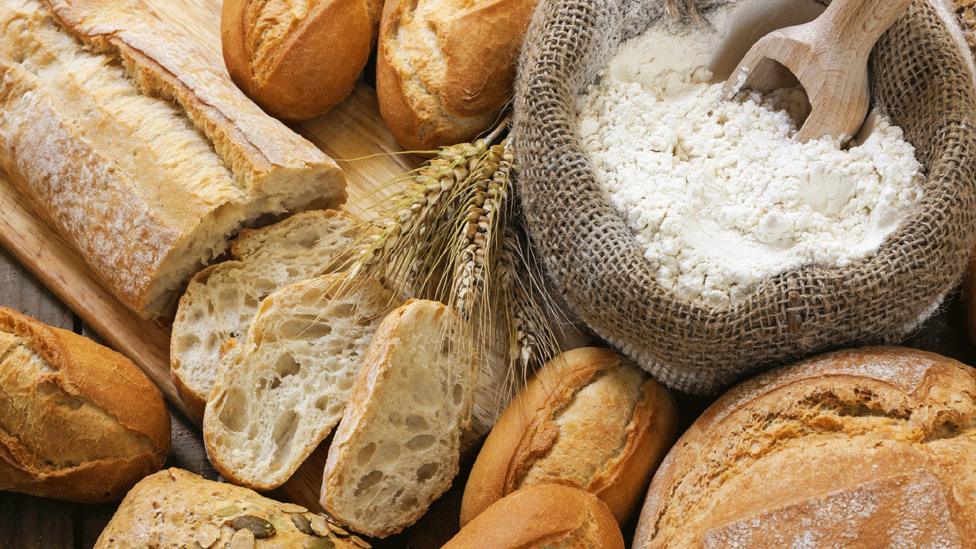Will folic acid ever be added to UK flour?
- Published

After repeated calls by health experts, the government says it will consult on adding folic acid to flour to help prevent common birth defects in babies.
Women are already advised to take the B vitamin before and during pregnancy, but many don't.
Mandatory fortification would mean everyone eating foods like bread in the UK will get a dose.
Experts say it is safe and will only bring benefits - lots of other countries have been doing it for years.
The government should reach a decision in spring, but the mood appears to be overwhelmingly in favour.
Why do experts say we need it?
Britain has a relatively high rate of preventable birth defects linked to low folic acid. Around 1,000 pregnancies are affected every year.
These "neural tube" defects include spina bifida (abnormal development of the spine) and anencephaly, which affects the brain.
Some babies survive, but many will experience lifelong impairment.
Why aren't pregnancy supplements enough?
Women who are trying to get pregnant should take an 'over the counter' dose of 400 micrograms of folic acid a day. For families where there is a history of spina bifida, a higher dose - 5mg - is needed.

Folic acid (vitamin B9) should be taken daily for at least one month prior to conception and through to the 12th week of pregnancy.
But many pregnancies are not planned and some women are not aware that they should be taking folic acid, or they forget to take it.
Fortification of flour with folic acid provides a safety net, but it does not mean that women no longer need to take a folic acid supplement.
When fortification first began in Canada in the late 90s, neural tube defects halved, external.
How would it change flour?
If plans go ahead to add folic acid, the flour you buy won't look or taste any different.
It is not the only thing added to flour. After World War Two, the government decided that white flour needed the same vitamins as high-bran wholemeal flour.
So, by law in the UK, iron, calcium and two other B vitamins - thiamin and niacin - are already added back to white flour, as they are removed with the bran during the milling of wheat to make the flour.
Could it be harmful?
Scientific experts have carefully considered this.
Research had previously suggested that high doses of folic acid could cause symptoms such as diarrhoea, cramps, sleep disorders, confusion, nausea and seizures.
There was also concern that it might cover up the symptoms of vitamin B12 deficiency - which is a particular concern in older people - or even be linked to some cancers.
But the government's independent advisory body - the Scientific Advisory Committee on Nutrition - is satisfied that these concerns are not supported by the evidence.
The government consultation, launching in early 2019, will fully consider what the wider implications would be for the rest of the population who eat flour.
Public Health Minister Steve Brine said: "My priority is to make sure that if introduced, we are certain it is safe and beneficial for all."
He told the House of Commons: "We will be taking evidence, including from the committee of toxicity, to look at the safe upper limit of folate levels which I am particularly keen to get right.
"I'm convinced that the evidence is overwhelming that this is something that we should be doing."
Dr Alison Wright from the Royal College of Obstetricians and Gynaecologists said: "This is a real opportunity to improve outcomes for families and society as a whole."

Good dietary sources of folic acid:
spinach, kale, Brussels sprouts, cabbage, broccoli
beans and legumes (e.g. peas, blackeye beans)
yeast and beef extracts
oranges and orange juice
wheat bran and other whole grain foods
poultry, pork, shellfish and liver
fortified foods (e.g. some brands of breakfast cereals - check the label)
Source: British Dietetic Association
- Published17 August 2017
